Memories of Taliban rule strike fear, uncertainty in Afghan women
Empowered young Afghan women fear a return to a repressive life.
Fatimah is one of millions of women in Afghanistan now living in the shadows, shuttered in their homes out of fears that their futures will be a return to a repressive past.
The 28-year-old photographer has known a vibrant, colorful and bold Afghanistan for much of her life. She told "Nightline" that she has spent years going "behind the burqa" to capture the beauty of Afghan women and show the world a more positive, stronger side of them that it "never sees and thinks about."
But like many Afghan women after the Taliban's sweeping offensive to reclaim the country, she faces uncertainty and fear that Afghan women will lose the everyday freedoms they've had for the last 20 years, including the ability to go to school or have a job. They fear a reversion to life in the late 1990s under Taliban rule, when they had few rights and violence was rampant.
"It's so complicated for now, and we don't know what will be next," Fatimah told "Nightline." To protect her identity, ABC News will only use her first name. "We are just thinking about what we read in history and what we know about [the] Taliban in Afghanistan. ... Now, I'm afraid we're going back 20 years ago. A couple days ago, I was talking to girls and they were concerned they had to wear a burqa again."
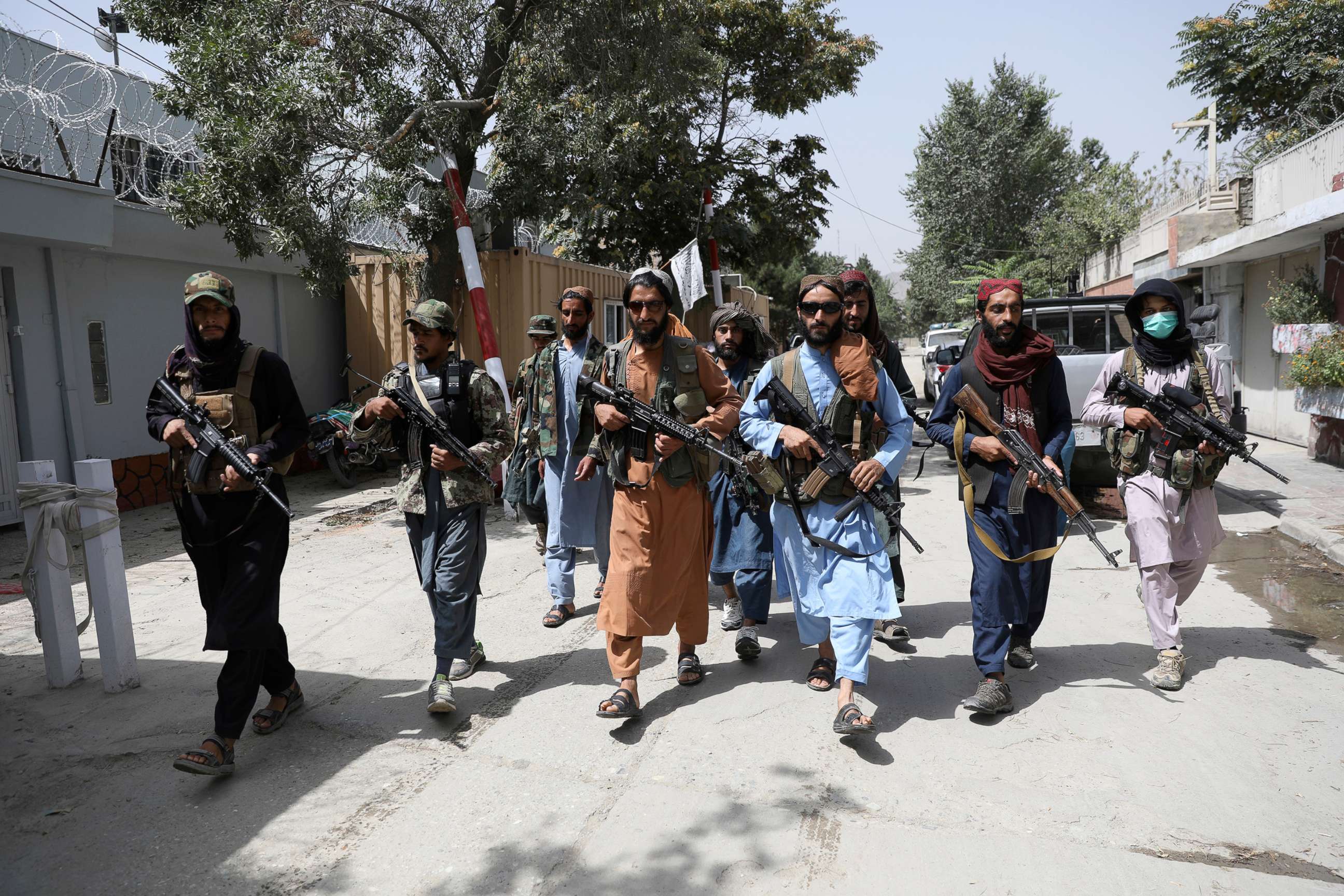
Fatimah, to whom ABC News will refer by only her first name, said that on Tuesday she walked out of her home wearing a full hijab, which covers the body and head like a burqa but does not cover the face.
"There are so many more brave women; it's not only me," she said. "They grew up here. They fought for so many things. They fought for what we are today. So how we can accept to go back? And how we can talk and how we can ignore women's rights? Because, as you see today, I could see that so many men were outside but so few women."
In a little more than a week, the Taliban seized cities throughout Afghanistan and declared full control of the country, potentially undoing much of the 20-year effort by the U.S. and NATO to strengthen Afghan security forces.
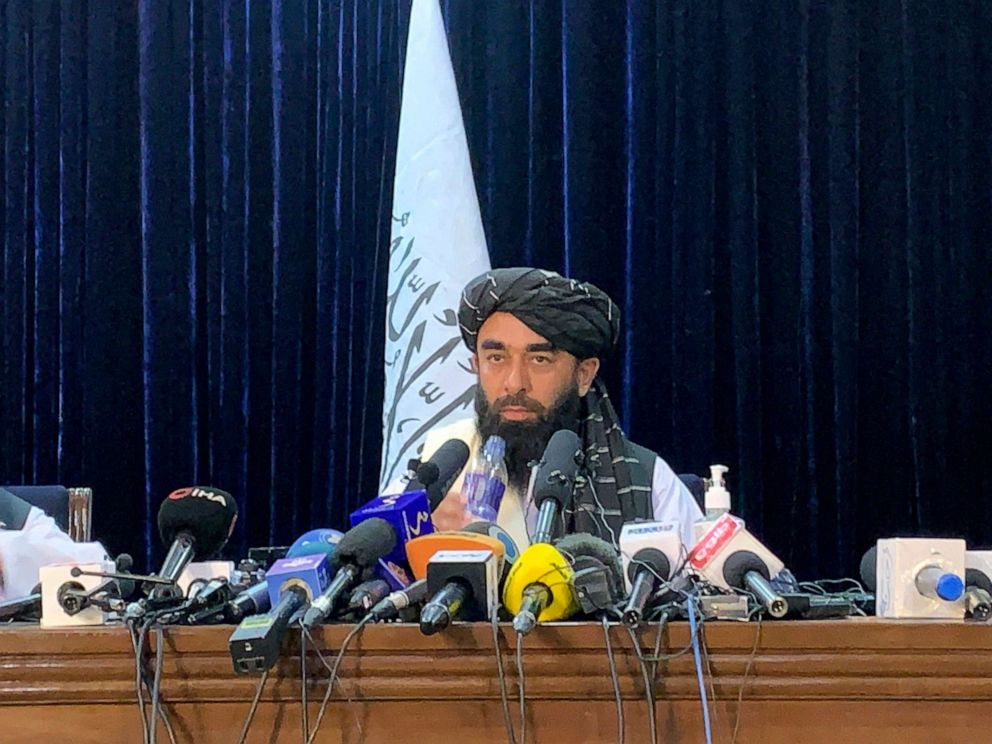
In its first press conference on Tuesday, the Taliban declared "amnesty" to Afghanistan, offering assurances of safety to anyone who'd worked with the U.S. or allied forces as interpreters or in another capacity.
The Taliban spokesperson also said that women would be "afforded all their rights whether it is at work or other activities because women are a key part of society." The group, he said, is encouraging women to join its government and continue to receive an education.
"We are guaranteeing all their rights within the limits of Islam," the spokesperson said, making it clear that Afghan women's rights would follow strict Sharia law.
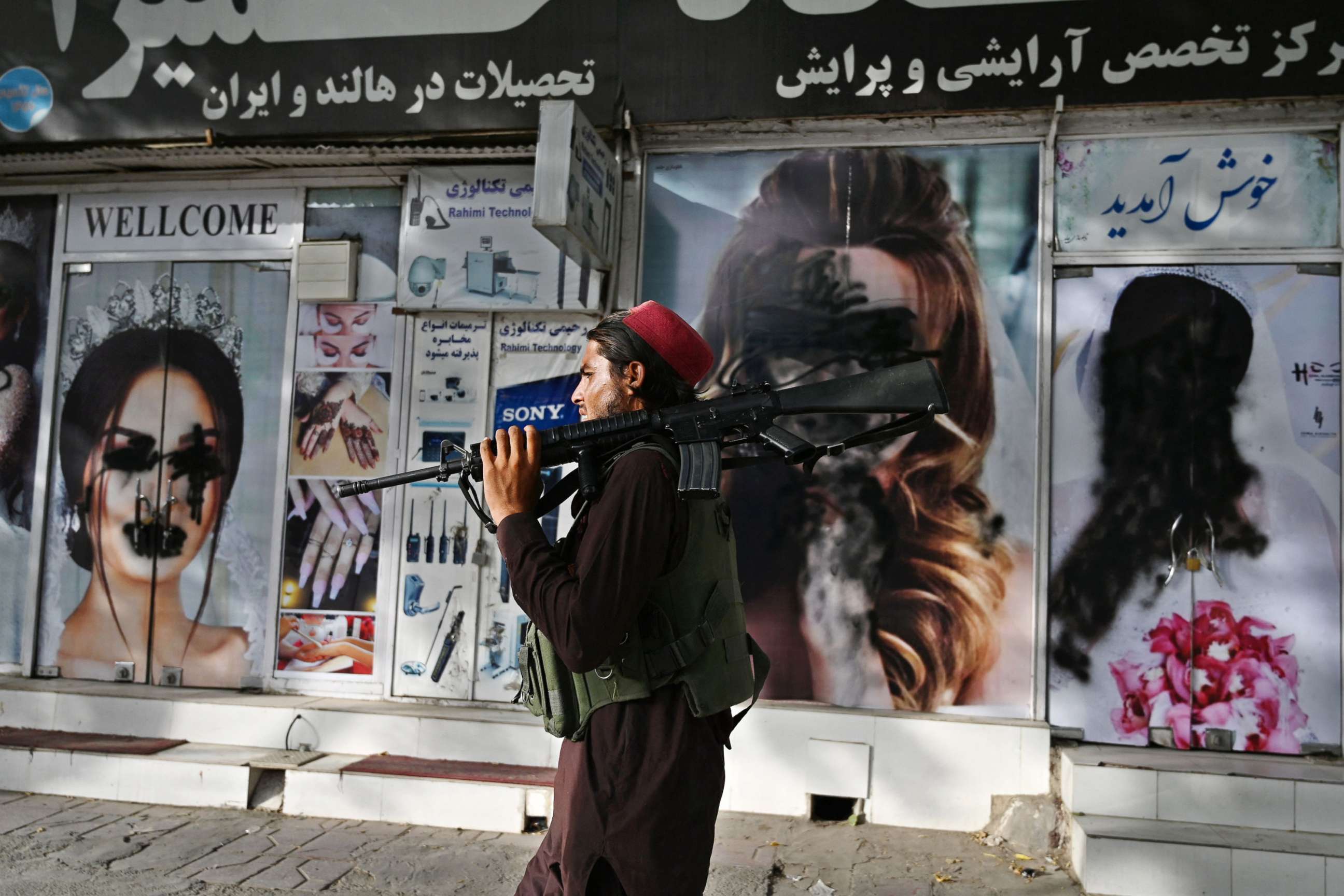
Fatimah expressed doubts about the Taliban's promises.
"Given the dark experience of Afghan people from Taliban regime, we saw so many other things that they didn't have the commitment," she said. "When I have conversations with Afghan girls in Kabul, they want to wear everything they wanted. They want to go to [the] cafe. They want to go have coffee, to talk about freedom."
Nasrin Nawa, a journalist and Fulbright scholar attending graduate school at the University of Nebraska-Lincoln, left Afghanistan on Friday, just days before the Taliban seized the presidential palace in Kabul. But while she was able to get out of the country, her family is still there.
"I'm not exaggerating, it was the worst time in my life," Nawa said about the moment she heard Kabul had fallen. "Even still, I cannot believe it."
She said that her sister is also a journalist, and that she fears for her life in Afghanistan after her flight out was canceled.
"She told me maybe she'd find a way," Nawa said. "She cannot take my parents with herself and it really hurts because they will be left behind without any children -- without anything -- under a regime that they don't believe in."
She went on, "Everyone has some memories [of the] Taliban from the previous regime. It was so dark and terrifying. It was full of cruelty and people just remember all the public executions. They will start taking away some people, specifically journalists, social activists [and] females who were active."

The sudden takeover has sparked a mass exodus of citizens and foreigners who fear for their safety from the brutal and oppressive rule of the Islamic militant insurgent group.
As many as 11,000 Americans and tens of thousands of Afghans desperately tried to leave Kabul on Tuesday as about 4,000 U.S. troops secured the airport. The Taliban had also set up checkpoints throughout the city to separate locals from foreigners. The State Department has directed Americans to the airport for departing evacuation flights but also warned on Wednesday that it could not “ensure safe passage” there, breaking from prior official messages assuring cooperation from the Taliban.
"The security situation in Kabul continues to change quickly, including at the airport," read an email notice from the U.S. Embassy in Kabul.
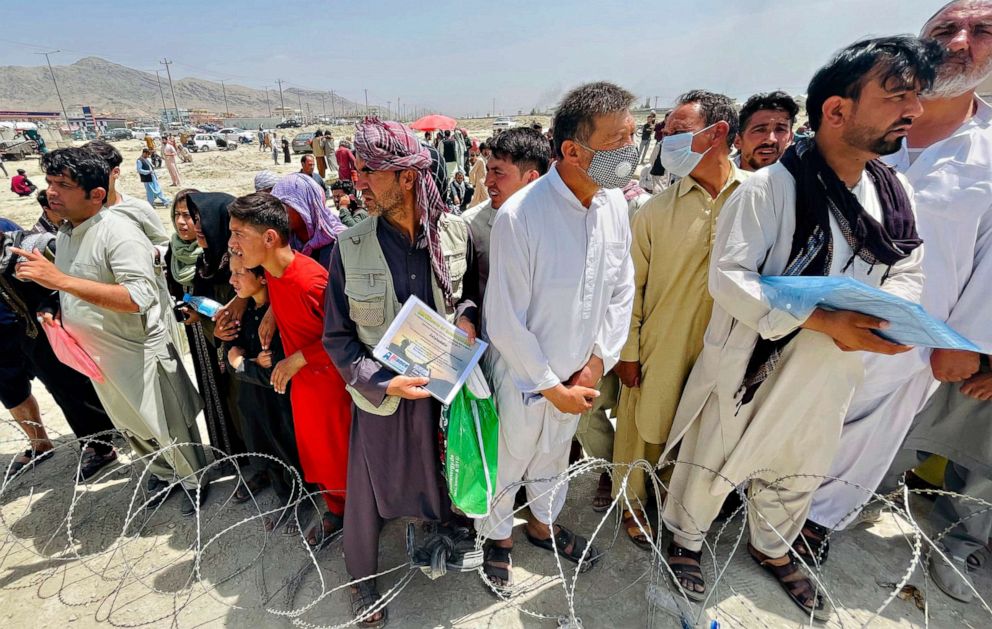
Senior leaders within the Taliban have claimed they want to form an "inclusive, Islamic government." The group, now more media-savvy, has used social media like Twitter to spread its message, and Whatsapp to encourage Afghan citizens to send complaints to its so-called Civilian Casualty Prevention and Complaints Commission.
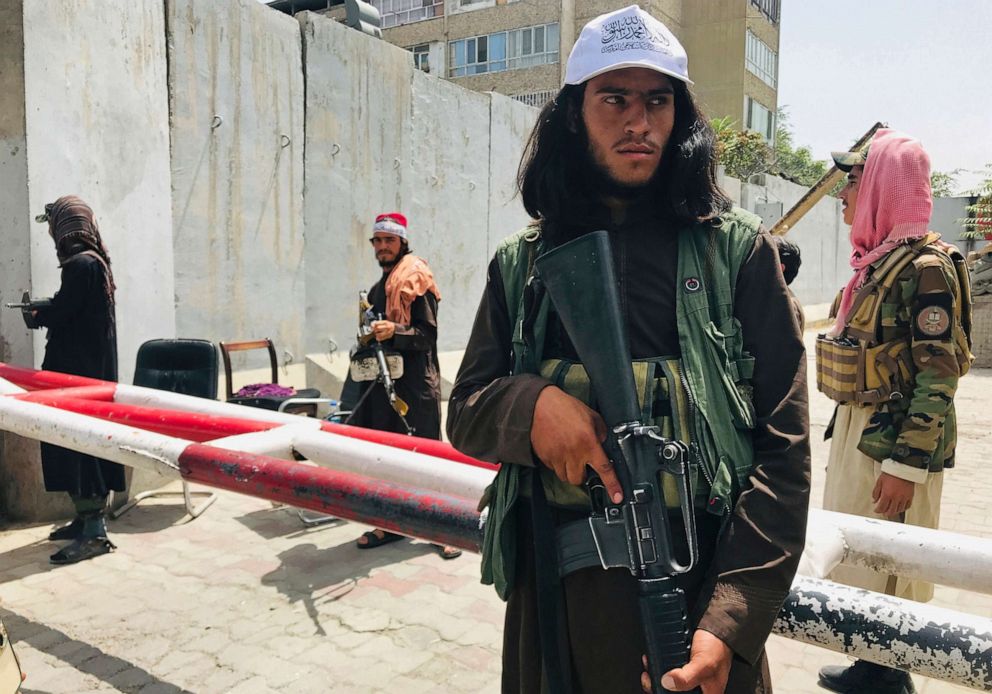
Author and journalist Gayle Tzemach Lemmon questioned who would hold the Taliban accountable if they were to rule again, and what the country would be like under a 21st century Taliban government.
"Executions, Taliban going door to door, no music, no connection to the outside world," Tzemach Lemmon told "Nightline." "Are they any different? Maybe, right? I mean, we'll see. But the country is definitely different."
In the '90s, just before the first Taliban regime acquired power, about 50% of government jobs were held by women, who also made up 40% of physicians and 70% of teachers. On Tuesday, the city in some ways resembled its previous self under Taliban rule, with few women outside.
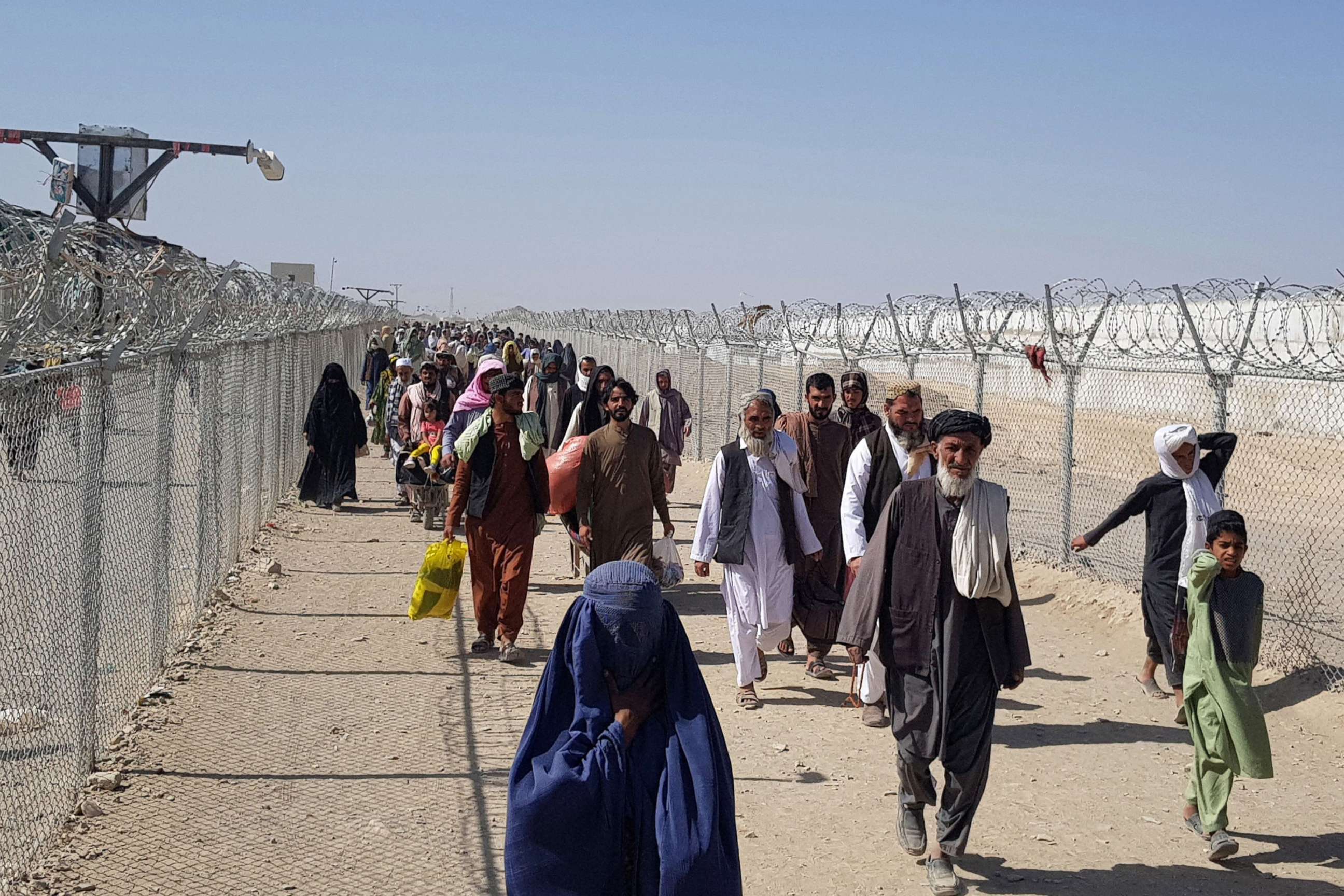
"In 1996, the first set of rules said no women in the streets without a chaperone, no women wearing anything but a burqa with no high heels," said Tzemach Lemmon. "And we're going to see the competition that was always taking place in Afghanistan between the forces of modernity and the forces that were pushing the country back toward its past, colliding. And the girls are going to be right in the middle of it."
"Imagine girls in your family living under [the] Taliban," she added. "These young women [have] been part of building [the] country's future and have to wait to see what [the Taliban] will bring."
Afghan journalist Nazira Karimi left the country in 1994, just before the Taliban acquired power for the first time. At a Pentagon press briefing on Monday, she pled for help on behalf of the Afghan people and asked where President Ashraf Ghani was after he fled the country on Sunday.
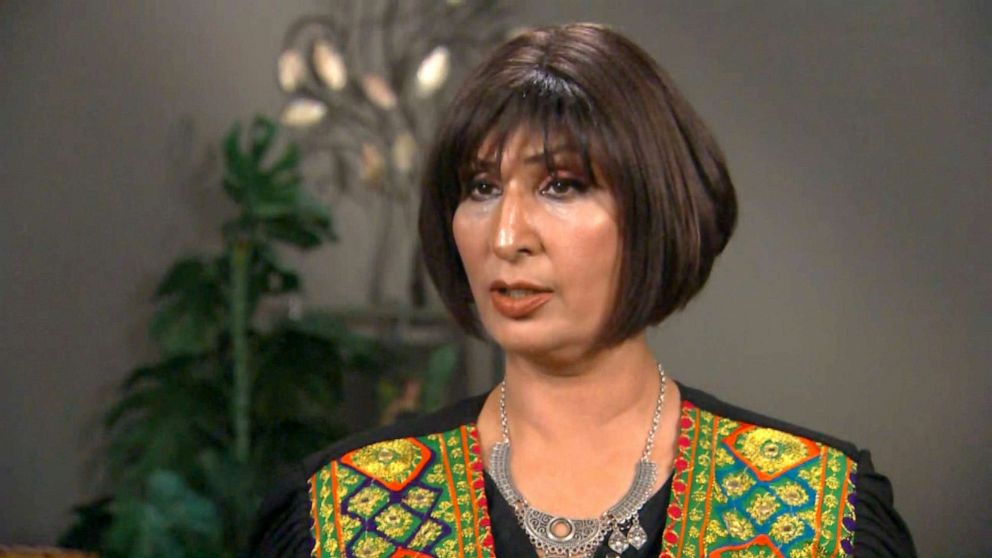
"We don't know where is he, and we don't have a president. President [Joe] Biden said that President Ghani know he has to fight for us people," Karimi said during the press briefing. "But we don't have any president. ... Afghan people don't know what to do. Women have a lot of achievement in Afghanistan. ... Now we go back to the first step again."
On Wednesday, he released a video message saying he was in the United Arab Emirates with his family and had "no choice" but to leave.
Karimi told "Nightline" that if the Taliban "continue their old policy, believe me, that there is no future in Afghanistan."
But she also said that Afghan women will fight for what they believe in.
"Afghan women, [they] never lose their hope. They never give up. As long as I know Afghan women, they are fighting as long as they are alive," Karimi said.
Fatimah echoed Karimi's sentiment, saying, "We are not fighting for our human rights. We are talking about our human need. ... We need to have more educated women to claim their voice, to have their space and to talk about gender equality."




